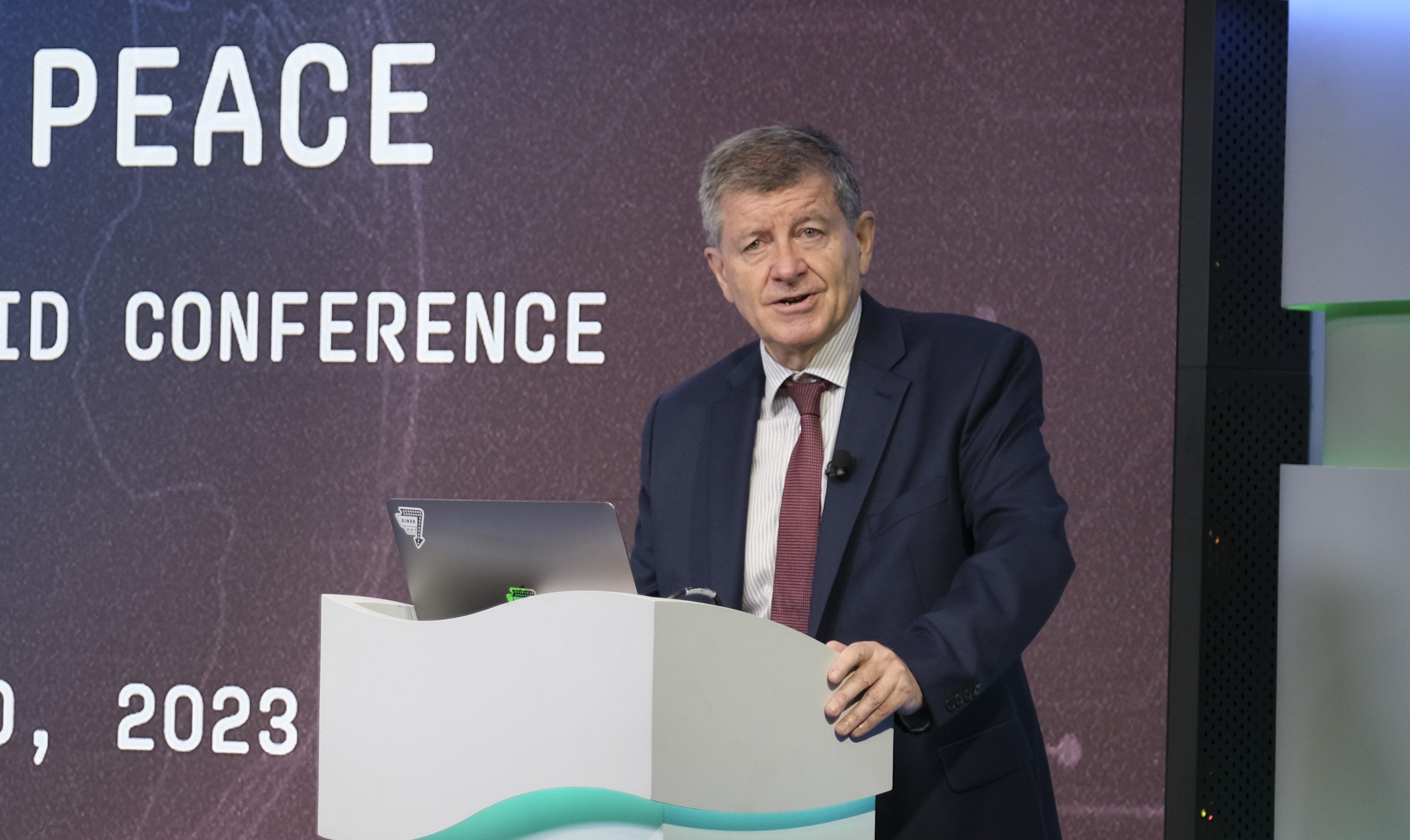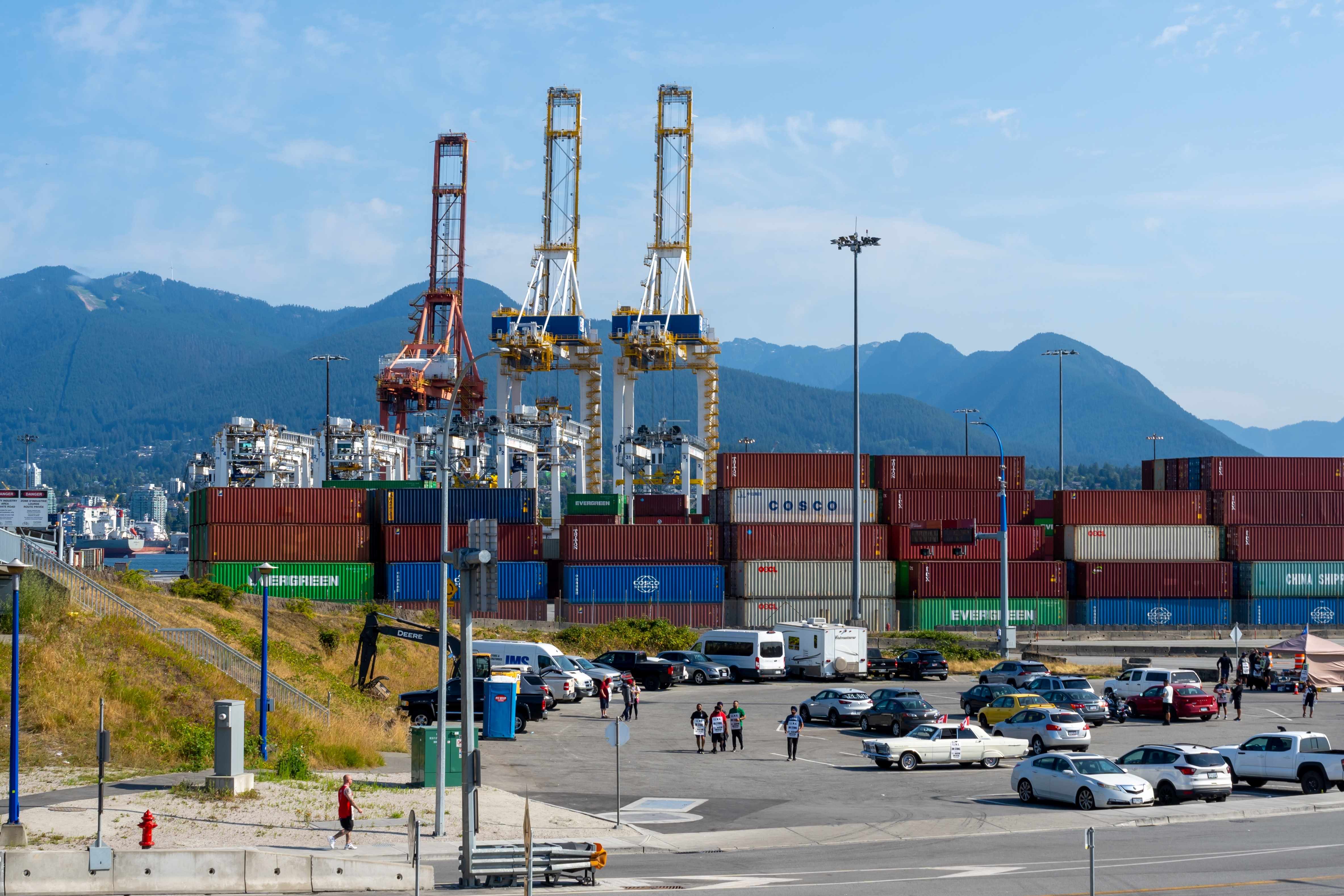Guy Ryder: Ryder on the storm
Leadership Insights newsletter story
Under-Secretary-General for Policy at the United Nations, and former Director-General of the International Labour Organization, Guy Ryder, shares his thoughts on accelerating the SDGs, combating climate change, negotiating labour conflicts and sustainability in businesses.

What progress have we made towards achieving the targets of the UN Sustainable Development Goals (SDGs)?
The Sustainable Development Goals (SDGs) really are the compass for the work of the international community, bringing people together at a time where there are many tensions and divisions in the international community. We are at the halfway point from when the 2030 Agenda for Sustainable Development was adopted in 2015, and the bad news is that we’re not doing very well: only 12% of targets are being met.
In some areas, such as working to end the threat of AIDS and HIV we are doing well, but in other areas, such as jobs and social protection, it is alarming to feel like we are going backwards. While COVID and the war in Ukraine can be seen as factors, we were off target before those things happened – so we need to have a much more fundamental examination of why we’re not doing well. I don’t think that this is because people don’t believe in the SDGs, but the fact of the matter is that we are not delivering and so we must change.
What areas do your findings indicate need urgent focus?
International finance is a vital area of focus since the investment agenda plays a role not only in climate change – which is an area where we really cannot afford not to do better – but also education, health and social protection. In the maritime industry, you are already aware that financing the decarbonisation transition is a big issue. We need to see how the international financial system is working, and make it work for delivery of the SDGs.
When the 2030 agenda was adopted, we talked extensively about the resources needed to make it happen. This is not a free agenda; it needs investment. Regrettably – and I think the UN Secretary General is really quite outspoken about this – the way the system functions today doesn’t deliver sufficient resources for the development process, particularly in the developing world, where it can be very, very difficult to raise resources on international financial markets.
How can we bridge the gap between environmental and business imperatives?
One of the biggest obstacles to effective climate action comes when people think that doing the right thing on climate is going to lose them their job or source of food, or deny them their legitimate ambition for development and a better life. If that happens, popular support and licence for climate action can be withdrawn. Equity is the key! If some people think they’ve been asked to take on an unfair share of the burden, change won’t happen. We need just transition to carbon neutrality or the transition is likely to be blocked.
This is a big ask and sometimes a difficult discussion. We are working with industry, including stakeholders such as ICS, to determine how business models and incentives for private investment can be adjusted to generate necessary financing for decarbonisation. The Just Transition is not simply the right thing to do but needs to be an inherent part of a successful business model in the sector. This is about combining the environmental, economic and social dimensions of sustainable business and it is essential.
How do you think maritime business leaders should best implement the sustainability agenda?
It is important to remember that there are opportunities embedded in the climate change agenda. We can move to something new and potentially better. You need the right regulatory environment to set parameters which meet the business logic of travelling the road to carbon neutrality.
Defining the business rules of the decarbonisation agenda needs to ensure that enterprises become competitive by being green rather than being disadvantaged. I think the financial markets and investors will be pressing for this- and that it requires transparency to be effective. It’s very important that investors and the people who use your services are able to verify that you’re actually walking the carbon neutrality talk. This cannot simply be part of the discourse of business leaders. It must be in their actions.
This also implies building confidence that a decarbonised sector will generate decent jobs and secure livelihoods. And the best way to do that is through dialogue between the two sides of the industry – workers and employers.
During your time at the International Labour Organization you worked on updates to the Maritime Labour Convention and dealt with minimum wage talks. How would you recommend that business leaders navigate increasing labour strikes?
We’re living in a world where dialogue is becoming quite difficult in all respects. We’re seeing quite a lot of industrial action, probably on a scale we haven’t seen for quite a long time. The most obvious reason for this is high inflation, which puts pressure on living standards and wage-fixing processes.
In my view, it’s really important to rediscover a sense of common purpose between workers and employers to make working conditions and pay fair. I know from my time working at the International Labour Organization that conversations between employers and workers can’t be a zero-sum game. There are ‘win-win’ options available here. I’ve sat in and around the minimum wage fixing in the international maritime industry, so I’ve seen how it’s done. It sometimes gets a little heated, but you get the job done. We need to get that spirit of dialogue back in action across our economies.
Related content

Summer of strikes in US and Canadian ports offer lessons for shipping

UN toolbox tackles supply chain resilience

Alzbeta Klein: Feeding a hungry world
